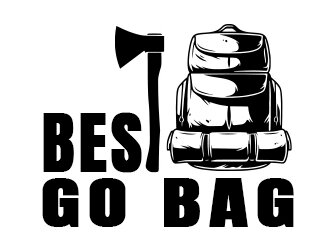Canadian Wildfires Sending Harmful Smoke Our Way
America has enough problems dealing with its own domestic issues.
Including extreme weather, cyber and physical attacks against the electric grids, aging infrastructure, freak accidents, and even EMP threats.
Now, smoke from hundreds of Canadian wildfires is invading the northern portions of the U.S. It’s causing health concerns ranging from breathing difficulties to the threat of water supply problems. And perhaps even a lack of access to food.
The American Red Cross is advising residents in some areas to stay inside and keep doors and windows closed. Having a reliable supply of clean drinking water and non-perishable food just became even more important. More on that in a moment.
Worst Wildfire Season Ever?
As of this writing, more than 10 million acres of land has been scorched in Canada. That’s more than 15 times the national annual average for this time of year for our neighbors to the north.
Wildfires are not uncommon in Canada. But it’s out of the norm for fires to blaze in the eastern and western portions of the country simultaneously.
Nine of the country’s 13 provinces and territories have seen fires, and more than 100,000 people have evacuated their homes. The eastern province of Quebec has been the hardest hit.
What’s to blame? Record-high temperatures in the provinces of Alberta, Nova Scotia, and Quebec. Plus strong winds, drought conditions, lightning strikes, and negligent hikers and campers. If this rate of fire activity continues, it will be the worst wildfire season in Canada’s history.
Haze Reaches Florida
A number of countries around the world have joined the U.S. in lending a hand. America has already sent hundreds of firefighters to assist.
In the U.S., especially in the Northeast, people are seeing, feeling, and breathing the smoke. Hazy conditions are in play in cities such as New York, Philadelphia, and Washington, D.C.
And it’s already drifted down to Kentucky, Virginia, and other Mid-Atlantic sections, placing millions of residents at risk. Some of the smoke and haze has even drifted as far south as Florida.
The first thought people have when it comes to smoky conditions is air quality. Many who assumed they’d retired their pandemic facemasks are wearing them again while outdoors.
But wildfires can also negatively affect our water supply. And being forced to stay indoors can make obtaining food more difficult.
Water Quality Could Take a Hit
Water quality can be compromised by wildfires not only while fires are burning, but even months and years after they’ve been extinguished.
Watersheds are land areas that channel rainfall and snowfall to various bodies of water. Once they are burned, flooding and erosion can allow contaminants to enter groundwater. As well as creeks, rivers, and lakes.
This can take its toll on water purity. Including in supply reservoirs and water treatment processes. Another issue with erosion is the formation of harmful algae, which can deprive aquatic life of oxygen it needs.
Erosion can also push nutrients normally found in the ground into bodies of water. The ground is then unable to produce the same quality of plant life used for food.
Prepare for a Wildfire
Canada is hardly unique when it comes to wildfires. These blazes have been a major problem in the U.S. for decades. And it seems to get worse every year.
If you live in an area prone to wildfires, it’s important to note these warnings and recommendations from the Red Cross and government officials:
· Create a family emergency plan that includes escape routes, insurance information, and where to meet loved ones.
· Build bug-out bags including supplies you’ll need for at least 72 hours. Keep at least one of those bags in each vehicle.
· Keep your vehicles’ gas tanks as full as possible.
· Remove leaves, dried branches, and other flammable materials from around your home.
· Have an emergency radio to keep you informed about current conditions in your area.
Once a wildfire is raging in your area…
· Keep windows and doors closed. Choose a room you can close off from outside air.
· Use fans and air conditioning to stay cool.
· Set up a portable air cleaner or filter to keep the air in this room clean even if it’s smoky in the rest of the building and outdoors.
· Avoid using candles, gas, propane, wood-burning stoves, fireplaces, or aerosol sprays. And don’t fry or broil meat, smoke tobacco, or vacuum.
· If you’re using a window air conditioner, make sure the seal between it and the window is as tight as possible.
· Have at least 72 hours’ worth of non-perishable food on hand per person.
Because you never know how long an emergency situation will last…
Patriot Pure Pitcher
As far as keeping cleaner, safer water on hand, we’ve got you covered there as well.
The Patriot Pure Pitcher targets 160+ contaminants. Including fluoride, lead, chlorine, mercury, and radiological contaminants. Not to mention vinyl chloride, which has entered water systems following recent train derailments.
Simple to use, the Patriot Pure Pitcher has a one-gallon lower reservoir and a filter meeting National Sanitation Foundation standards.

